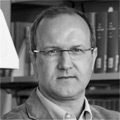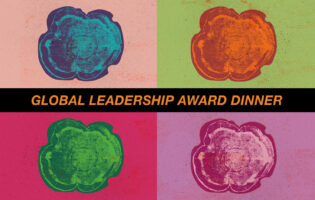Détente without Illusions

Gunther Hellmann
Goethe-University, Frankfurt
Gunther Hellmann is Professor of Political Science at Goethe-University, Frankfurt am Main and Adjunct Professor at the Bologna Center of the School of Advanced International Studies, Johns Hopkins University. He is a Principal Investigator and Member of the Board of Directors of the Frankfurt Cluster of Excellence “Formation of Normative Orders.” In 2012 he will serve as the “Harris Distinguished Visiting Professor” at Dartmouth College. His research interests are in the fields of foreign policy analysis, esp. German and European foreign policy; international security, esp. transatlantic and European security; and international relations theory.
His recent publications include “International Relations as a Field of Studies”, in: Bertrand Badie, Dirk Berg-Schlosser and Leonardo Morlino (Eds.): International Encyclopedia of Political Science, London: Sage Publication 2011; Ed. “The Forum: Pragmatism and International Relations”, International Studies Review 11:3 (2009), 638-662; Ed. “Special Section” on “IR Theory and (German) Foreign Policy”, Journal of International Relations and Development 12:3 (2009); Die Semantik der neuen deutschen Außenpolitik. Eine Analyse des außenpolitischen Vokabulars seit Mitte der 1980er Jahre, Wiesbaden: VS Verlag für Sozialwissenschaften 2008 (Ed. with Christian Weber/Frank Sauer); “Inevitable Decline versus Predestined Stability: Disciplinary Explanations of the Evolving Transatlantic Order”, in: Anderson, Jeffrey/Ikenberry G. John/Risse, Thomas (Eds.), The End of the West? Crisis and Chance in the Atlantic Order, Ithaca: Cornell University Press 2008, 28-52; Handbuch zur deutschen Außenpolitik, Wiesbaden: VS Verlag für Sozialwissenschaften 2007 (Ed., with Siegmar Schmidt/Reinhard Wolf); Ed., De-Europeanization by Default. Germany’s EU-Policy in Defence and Asylum, Houndmills, Basingstoke: Palgrave MacMillan 2006.
The debate in Germany about policy toward Russia is generating a critical mass of competing perspectives and prescriptions. It may be one of the more important foreign-policy arguments at a time when Germans are wrestling with their global role and responsibilities.
A recent open letter signed by many prominent German figures was published calling for a new approach to Russia in the wake of the crisis over Ukraine. In response to that letter, a number of well-known German scholars have offered an alternative assessment of the challenges emerging from the crisis and of the way forward in dealing with them. We offer a look at this debate which will continue into the new year and perhaps well beyond 2015. AGI will be monitoring and commenting on it in the months ahead.
The online-edition of the German newspaper “Die Zeit” recently published an appeal under the title “Another war in Europe? Not in our name“. The petition is signed by an impressive number of prominent Germans from politics, business and culture. It cautions against the possibility of a new war in Europe. The signatories (among them former Chancellor Gerhard Schröder, former President Roman Herzog and Horst Teltschik, Security Advisor of Chancellor Kohl) argue that Russia needs to be included in a lasting European order of peace based on the principles of “equal security for all” and “formal equality among reciprocally respected partners”. To be sure, this is a noble objective and obviously nobody would argue against it – except, perhaps, a few hardliners in the Kremlin who have been pursuing the opposite for the last few months.
According to the signatories, Russia’s annexation of the Crimean Peninsula and the “threatening expansions of the West into Eastern Europe” are showing that the possibility of war in Europe is an option that is no longer excluded from the crisis-management repertoires of all the parties involved. The petition calls upon the Federal Government of Germany to take a stand in support of a “new policy of détente”. It emphasizes the need to take “Russia’s legitimate security needs” into account in order to halt a “spiral of threat and counter threat” and to set an end to “obsessive quests for power and dominance”. Furthermore, Western media should stop the “demonization” of the Russian people and instead show greater understanding for “Russian fears”.
Undoubtedly, the appeal has been issued with honorable intentions. However, it lacks in concrete policy prescriptions and it also misrepresents the central causes of the contemporary crisis in East-West relations. To be sure, the West has to ask itself whether Western actions have unnecessarily contributed their share to the ongoing tensions with Russia, especially as far as Russia’s sensitivities regarding the association agreement between the EU and Ukraine are concerned. Here, Russia’s legitimate interests should have been taken more seriously. But the signatories’ insinuation that “obsessive quests for power and dominance” and aggressive policies have been pursued by both sides not only ignores the legitimate interests and concerns of Ukraine (as a group of politicians and historians has succinctly pointed out) but it also misrepresents what NATO has been doing and what Russia aims at.
The West does not threaten Russia’s security. At most it thwarts Moscow’s aspirations for an exclusive sphere of influence. This is the issue at the heart of the ongoing crisis. The expanding influence of the European Union and NATO endangers Russia’s claim for great power privileges. Yet it does not threaten Russia’s physical security. Those who assume that Russia’s strategy is driven by fear seem to believe that the Kremlin simply overlooked the evident reduction of European and US defense spending in the wake of the Russian intervention in Georgia, that America’s foreign policy and security priorities are increasingly shifting towards the Asia-Pacific, that President Obama has abandoned plans for stationing a theater missile defense systems in Poland, and that the Pentagon reduced the number of American combat brigades deployed to Europe from four to two.
Indeed, the enlargement of EU and NATO has reduced Russian influence and hurt Moscow’s pride. But can this legitimate a policy that negates the right of self-determination? Can an order based on the principles of “mutual security for all” and “formal equality among reciprocally respected partners” be created, if some countries have to submit to the preponderance of the most powerful? And does it really make sense to intensify a policy of détente while the Kremlin simultaneously pursues Russia’s objectives by force?
The signatories of the appeal ignore that, for an effective policy of détente, Berlin has to deal with a reliable partner on the Russian side. Unfortunately, this partner cannot be Gorbachev or the Russian people. This partner has to be Vladimir Putin. Putin, however, is not only known for his description of the dissolution of the Soviet Union as the “greatest geopolitical catastrophe of the 20th century”. He also has proven more than once that he is unwilling or unable to end the blatant breaches of the Minsk agreements. An effective policy of détente with Russia does not only depend on acknowledging that serious tensions exist. It also presupposes – as Willy Brandt put it in a speech to the German Bundestag in December 1966 – that peace can only be secured by pursuing a “policy of détente without illusions” – a policy which acknowledges existing cleavages.
Yes, everybody should avoid demonization and show empathy for the security needs of others. Yet, a responsible strategy for peace can only be based on understanding and not on wishful thinking about foreign policy motives. This is why the appeal boils down to a helpless gasp. It is counterproductive because it rests on false premises, further irritates Germany’s partners in Eastern Europe and strengthens the hardliners in Russia. Fortunately, Chancellor Merkel and Foreign Minister Steinmeier seem to understand, as Willy Brandt did in the 1960s and 1970s, that an effective strategy needs to be based on “détente without illusions”.
This contribution has been initiated and drafted by Reinhard Wolf and Gunther Hellmann who teach Political Science at Goethe University Frankfurt/Main. Its core message is also supported by the following 50 individuals (even if minor differences in terms of content and/or emphasis may remain):
Dr. Mathias Albert, Professor of Political Science, Bielefeld University and DAAD Hannah Arendt Visiting Chair 2014/15, University of Toronto
Dr. Annegret Bendiek, Senior Associate, German Institute for International and Security Affairs, Berlin
Dr. Dirk Berg-Schlosser, Professor of Political Science, Philipps University Marburg
Dr. Stephan Bierling, Professor of Political Science, University of Regensburg
Dr. Rafael Biermann, Professor of International Relations, Friedrich-Schiller University Jena
Dr. Dieter Bingen, Director, Deutsches Polen-Institut Darmstadt and Adjunct Professor of Political Science, Technical University Darmstadt
Dr. Tanja Börzel, Professor of Political Science, Free University of Berlin
Dr. Jens Borchert, Professor of Political Science, Goethe-University Frankfurt/Main
Dr. Wilfried von Bredow, Professor of Political Science (retired), Philipps University Marburg
Dr. Andreas Busch, Professor of Political Science, University of Göttingen
Dr. James Davis, PhD, Professor of Political Science,University of St. Gallen
Dr. Wolf-Dieter Eberwein, Professeur de Science Politique (retired), Institut d’Etudes Politiques, Grenoble
Dr. Alexander Ebner, Professor of Political Economy, Goethe University Frankfurt/Main
Dr. Andreas Falke, Professor of International Studies, School of Business and Economics,, University of Erlangen-Nürnberg
Dr. Erhard Forndran, Professor of Political Science (retired), Otto-von-Guericke University Magdeburg
Dr. Frank Gadinger, Team-Leader, Centre for Global Cooperation Research, Duisburg
Dr. Markus Gangl, Professor of Sociology, Goethe-University Frankfurt/Main
Dr. Philipp Genschel, Professor of European Public Policy, European University Institute, Florence
Dr. Winand Gellner, Professor of Political Science, University of Passau
Dr. Ulrike Guérot, Director, European Democracy Lab, Berlin
Dr. Andreas Hasenclever, Professor of Political Science, University of Tübingen
Dr. Axel Heck, Lecturer, Albert-Ludwigs University Freiburg
Maren Hofius, MA, Lecturer, Hamburg University
Josef Janning, Senior Policy Fellow Berlin, European Council on Foreign Relations, Berlin
Dr. Thomas Jäger, Professor of Political Science, University of Cologne
Dr. Joachim Krause, Professor of Political Science, University of Kiel
Dr. Martin List, Senior Lecturer, FernUniversität Hagen
Dr. Hanns Maull, Professor of International Relations (retired), University of Trier
Dr. Hartmut Mayer, Lecturer in Politics, St. Peter’s College, University of Oxford and Adjunct Professor of European and Eurasian Studies, SAIS Johns Hopkins University Bologna
Dr. Klaus Naumann, Senior Research Fellow, Hamburg Institute for Social Research
Dr. Jürgen Neyer, Professor of European Politics, European University Viadrina Frankfurt (Oder)
Dr. Dirk Peters, Senior Research Fellow, Peace Research Institute Frankfurt (PRIF)
Dr. Walter Reese-Schäfer, Professor of Political Theory and History of Ideas, Georg-August-University Göttingen
Dr. Henning Riecke, Senior Fellow, Deutsche Gesellschaft für Auswärtige Politik, Berlin
Dr. Thomas Risse, Professor of Political Science, Free University of Berlin
Dr. Sigrid Rossteutscher, Professor of Political Sociology, Goethe University Frankfurt/Main
Dr. Joachim Schild, Professor of Political Science, Trier University
Dr. Frank Schimmelfennig, Professor of European Politics, Swiss Federal Institute of Technology Zürich
Dr. Gabi Schlag, Assistant Professor, Otto-von-Guericke University Magdeburg
Dr. Siegmar Schmidt, Professor of Political Science, University Koblenz-Landau
Dr. Ulrich Schneckener, Professor of Political Science, University of Osnabrück
Dr. Gerald Schneider, Professor of Political Science, University of Konstanz
Dr. Wolfgang Seibel, Professor of Political Science, University of Konstanz
Dr. Georg Simonis, Professor of Political Science, FernUniversität Hagen
Dr. Bernhard Stahl, Professor of International Politics, University of Passau
Ursula Stark Urrestarazu, MA, Lecturer, Goethe University Frankfurt/Main
PD Dr. Christian Tuschhoff, Free University of Berlin
Dr. Johannes Varwick, Professor of International Relations and European Politics, University Halle-Wittenberg
Dr. Hubert Zimmermann, Professor of Political Science, Philipps University Marburg
Dr. Michael Zöller, Professor of Political Sociology, University of Bayreuth
The original article is written only in German; however, an informal English translation is available here. This translation is not associated with AGI.








